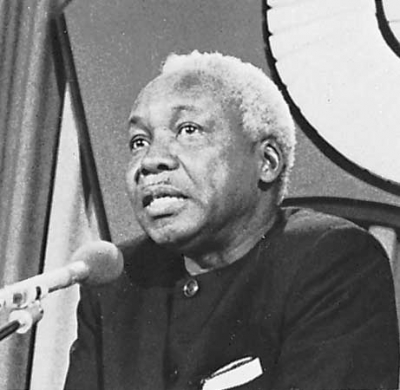
Julius Kambarage Nyerere was a Tanzanian anti-colonial activist, politician, and political theorist. He governed Tanganyika as Prime Minister from 1961 to 1962 and then as President from 1963 to 1964, after which he led its successor state, Tanzania, as President from 1964 to 1985. A founding member of the Tanganyika African National Union (TANU) party—which in 1977 became the Chama Cha Mapinduzi party—he chaired it until 1990. Ideologically an African nationalist and African socialist, he promoted a political philosophy known as Ujamaa.
A committed pan-Africanist, Nyerere provided a home for a number of African liberation movements including the African National Congress (ANC) and the Pan African Congress (PAC) of South Africa, Frelimo when seeking to overthrow Portuguese rule in Mozambique, Zanla (and Robert Mugabe) in their struggle to unseat the white regime in Southern Rhodesia (now Zimbabwe). He also opposed the brutal regime of Idi Amin in Uganda. Following a border invasion by Amin in 1978, a 20,000-strong Tanzanian army along with rebel groups, invaded Uganda. It took the capital, Kampala, in 1979, restoring Uganda’s first President, Milton Obote, to power. The battle against Amin was expensive and placed a strain on government finances. There was considerable criticism within Tanzania that he had both overlooked domestic issues and had not paid proper attention to internal human rights abuses. Tanzania was a one party state — and while there was a strong democratic element in organization and a concern for consensus, this did not stop Nyerere using the Preventive Detention Act to imprison opponents. In part this may have been justified by the need to contain divisiveness, but there does appear to have been a disjuncture between his commitment to human rights on the world stage, and his actions at home.
Picture Credit : Google

